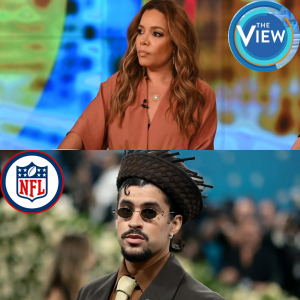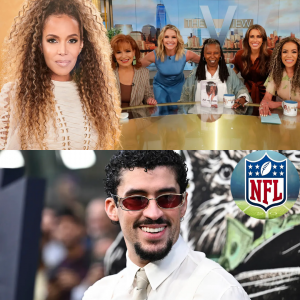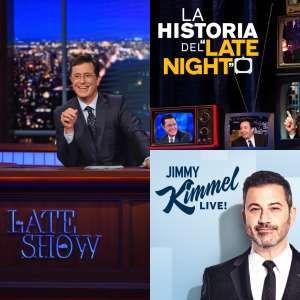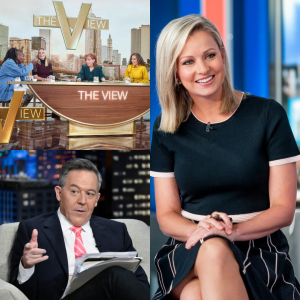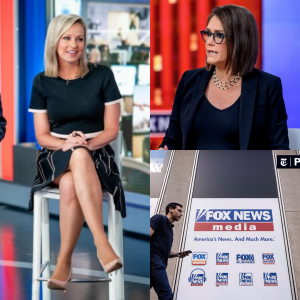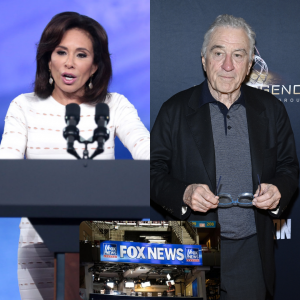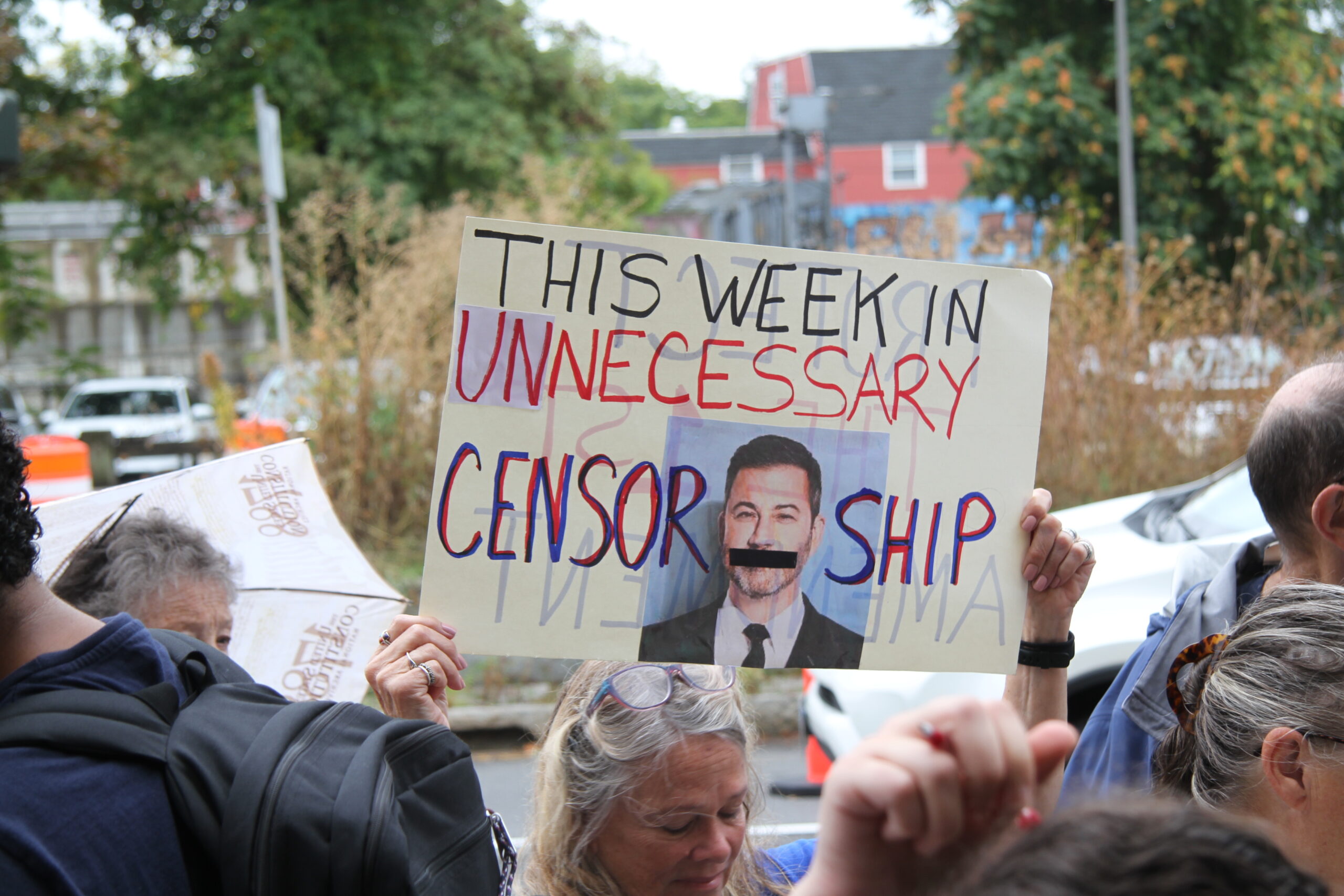
Perhaps the only consistent thing about the news is that headlines change. They change quickly, sporadically and with the intention of drawing us in just enough that we continuously refresh our screens, eager to read something that resonates with some part of us.
I woke up on Sept. 17 to this headline: “ABC Pulls ‘Jimmy Kimmel Live!’ After Charlie Kirk Comments.” Just five days later, ABC announced the end of that suspension, and a day after that Kimmel reprised his spot on the network. I, as I imagine many others were, was eager to hear Kimmel’s response. At this moment in our nation’s history, as we witness an active threat to our right to freedom of speech, the quick turnaround of this recent news cycle has called back to the cancellation of Stephen Colbert’s show this summer. But why were the stage lights shut off for two of late night’s biggest names in the first place and why did the shows then have such drastically different trajectories?
:max_bytes(150000):strip_icc():focal(999x0:1001x2)/Jimmy-Kimmel-db432376425b4b04a35852ec4fbd70b9.jpg)
I was perhaps more surprised by the news that Kimmel’s show would return to the air than I was by the fact that it was suspended in the first place. “The Late Night Show with Stephen Colbert” had a cut and dry ending. While the cancellation seemed to me then like the most extreme form of political intervention, in the wake of Kimmel’s return, I cannot help but wonder if suspension is more sinister. Unlike Colbert, who knows the fate of his show and may feel more emboldened to speak his mind, Kimmel has to proceed with caution. His contract ends in 2026, and there’s always a chance the show could get picked up again. In a sense, “Jimmy Kimmel Live!” going back on air financially incentivizes Kimmel’s self-censorship.
Earlier this year, CBS announced their plan to retire “The Late Night Show with Stephen Colbert.” There were no plans to reprise the longest running late night comedy show with a different host, and the network remained adamant that it was “a purely financial decision.” Supporters of the show, however, pointed to the politically charged moment of the announcement. In the days leading up to the cancellation, Colbert called the $16 million settlement between CBS and the Trump Administration a “big fat bribe,” which followed a lawsuit the White House filed against a “60 Minutes” episode featuring Kamala Harris which was claimed to be deceptively edited. The White House didn’t release a statement on the cancellation, but President Donald Trump did personally celebrate it by saying, “I absolutely love that Colbert got fired. His talent was even less than his ratings. I hear Jimmy Kimmel is next.”
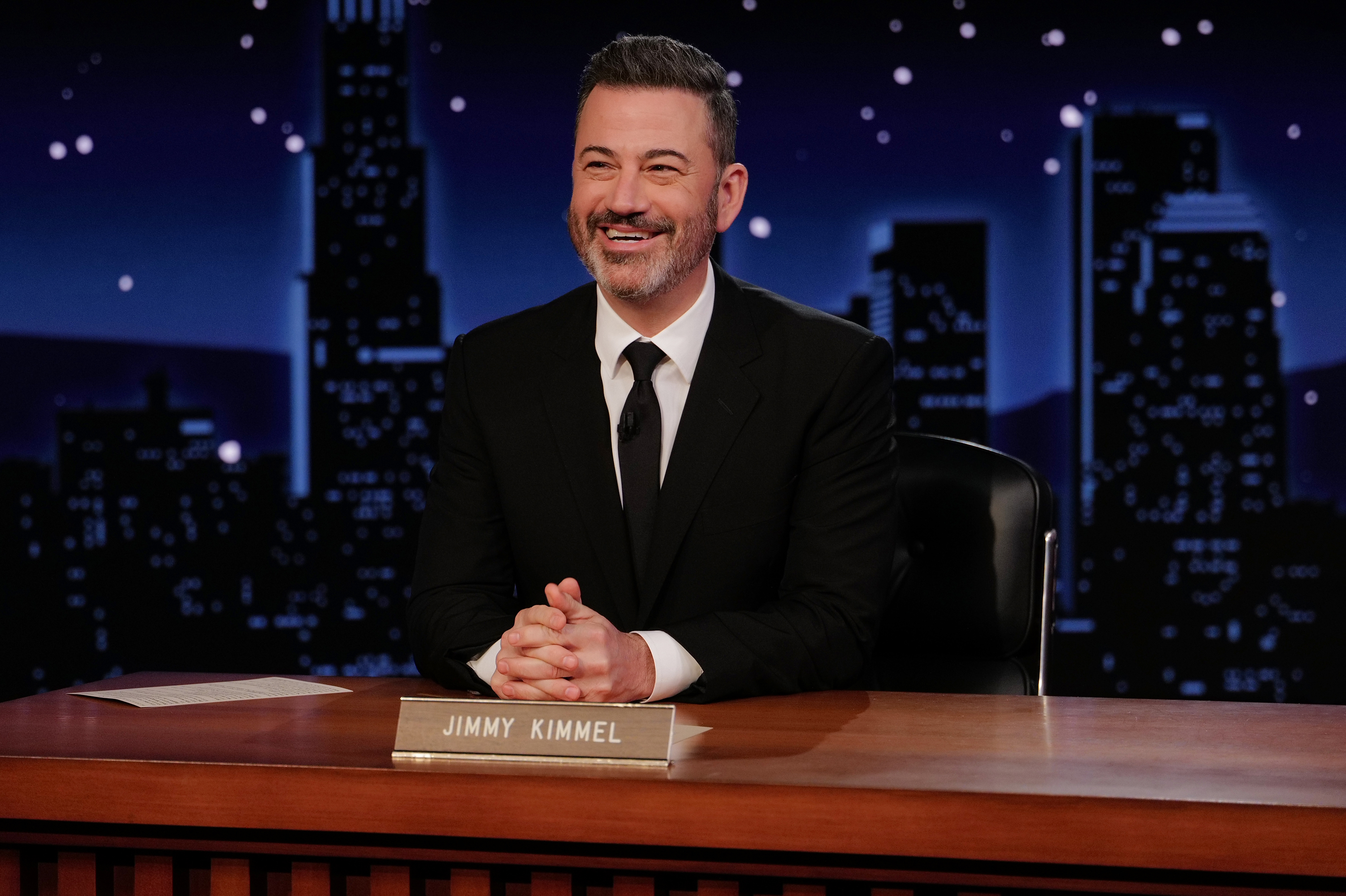
While the proximity of Colbert’s comments to his show’s cancellation is suspicious, CBS never corroborated the comments as a cause. Kimmel was taken off the air for an explicit political reason: his comments related to the shooting of MAGA star, Charlie Kirk.
In Kimmel’s monologue he said, “The MAGA gang [is] desperately trying to characterize this kid who murdered Charlie Kirk as anything other than one of them and doing everything they can to score political points from it.” Kimmel’s suggestion that Tyler Robinson, Kirk’s alleged murderer, was either a supporter of MAGA or that his act of political violence was a part of a movement towards force and violence in U.S. politics — especially among the far right — angered Trump officials.
Brendan Carr, the Federal Communications Commission chair, suggested as well as supported Kimmel’s cancellation. Carr epitomizes the Trump Administration’s abuses of power, and his role in Kimmel’s suspension is a prime example of how the administration prevents ideas they don’t agree with from coming to light and in doing so, decides who is empowered to speak.
Disney, which owns ABC, put forth this statement: “we made the decision to suspend production on the show to avoid further inflaming a tense situation at an emotional moment for our country.” The company was concerned that “some of the comments were ill-timed and thus insensitive.” I found the language of “our country” to be far reaching. Kirk’s assassination exhibits such extreme division in the United States that I find it almost ironic Disney would choose this moment to speak on behalf of the entire nation.
Reading about Kimmel’s suspension, I had a hard time understanding why the line from his monologue that was cited as such an inflammatory comment, especially in comparison to other clips of late-night TV that I have seen. In the context of the entire episode, or even the entirety of Kimmel’s 10-minute opening monologue, it doesn’t strike me as a line that would stand out. So how did it cause such a stir?
All of these responses have been amplified by the advent of short form content, like Instagram Reels and TikToks, made from hourlong late night television. These shorts don’t capture the entirety of a situation’s context when they are created by piecing together certain lines of dialogue that incite the biggest reactions. At face value, Kimmel’s comments were more so about Donald Trump than they were Charlie Kirk. By taking his words out of context to intensify a particular message, it becomes more clear how the comment could incite such an intense reaction.
I myself think both Colbert’s cancellation and Kimmel’s suspension are blatant attacks on freedom of speech. If these celebrity media careers are jeopardized by political satire — content that is, if we’re being honest, the entire reason they are popular to begin with — I wonder what might happen to the average citizen who voices something that doesn’t align with Trump’s America.
As “Jimmy Kimmel Live!” airs again this week, we must remember that we cannot allow our politicians free reign. In the wake of the Kimmel cancellation, Americans fought back. It is largely due to mass cancellations of Disney and Hulu subscriptions and the fact that numerous celebrities and “Hollywood creatives” signed a letter backing Kimmel that the show has returned to air. We need to protect our right to freely speak, write and, yes, even joke.

